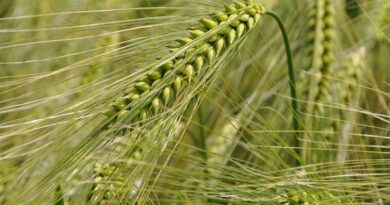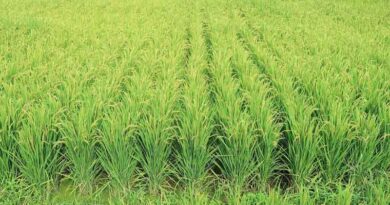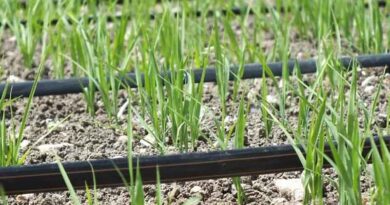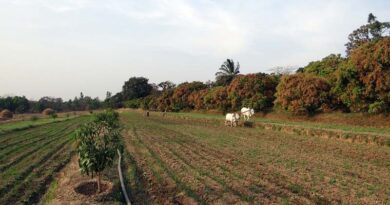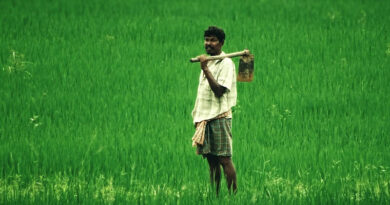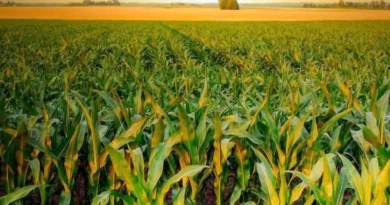Promoting Organic Farming Among Smallholder Women Farmers in North Bihar
30 December 2022, New Delhi: The Indian agriculture sector has been a positive aspect of the Indian economy despite COVID-19 disruptions. The sector still accounted for 20.2 percent of Gross Value Added (GVA) in 2020–2021 and employs 45.6 percent workforce. The sector also offers essential supplies like food for humans, animal feed, and major supplies of raw materials for the country’s agro-based industry.
With the help of the green revolution, the country is now self-sufficient in food grains but over the years reliance on chemical fertilizers and pesticides has led to environmental degradation. However, in the past two decades, organic farming is gaining popularity all over the world and even the Indian government has also been promoting organic farming through various government schemes.
Tapping into the potential of organic farming for smallholder farmers, the Heifer India team under its Bihar Sustainable Livelihood Development (BSLD) Signature Program is propagating the adoption of organic farming among the project participants that includes women-led self-help groups in the six project districts in North Bihar: Darbhanga, Madhubani, Muzaffarpur, Samastipur, Sitamarhi, and Vaishali. Heifer’s India agricultural experts are conducting awareness sessions on organic techniques such as crop rotation, green manuring, adoption of natural fertilizer through composting, benefits of multiple cropping (e.g., potatoes, lentils, tomatoes, and beans on the same farm), natural weed control strategies and organic methods to improve soil quality.
Karunesh Shukla, BSLD Project Officer-Agriculture, explains how he collaborates with smallholder women farmers and offers training on the preparation of organic fertilizers, natural pesticides, natural growth stimulators, and organic manure through standardized organic techniques such as Jeevaamrit, Beejamrit, Amritpani, Panchagavya, and Neemastra.
In these trainings, the project participants are also sensitized to how organic products are free of chemicals and fertilizers, and how organic farming improves soil quality and the environment.
The impact of organic training is visible, as self-help group members in the project areas have started adopting these techniques in their kitchen gardens and small farms. The team is also promoting fodder cultivation by supplying seeds of bajra Napier hybrid or Elephant Grass, Mulberry (scientific name Morus Alba), and Para grass (scientific name Brachiaria Mutica).
Shakuntla Devi, President of the Sita Self-Help Group in Sibaul village, Madhubanisaid, “The formation of the self-help group 17 months back has been beneficial for the members. Before we would depend on outsiders to borrow INR 50 (USD 0.63) to INR 500 (USD 6.3), but after the formation of a self-help group, it was easier to get money from group savings through mutual consensus. Organic farming is beneficial — before we had to buy expensive chemical fertilizer from the market — now we can make organic fertilizer at home and earn savings for the family.”
The project team is urging the Board Members of Farmer Producer Companies (FPCs) to invest in bulk production of organic formulations which will help to reduce the price of organic feed formulations. Thus, creating a win-win situation for both FPCs and project participants. The BSLD team has an ambitious plan to cover 550 acres of farmland under organic farming and reach out to more than 2,200 families by end of 2023. So far, the team has covered 17 acres and reached 87 families. To ensure faster adoption of organic farming in the project areas, the team has nurtured partnerships with the private sector. Harvest Plus is supplying zinc-fortified seeds and Sri Plus is supplying bio fertilizers to the project participants.
Dr. Abhinav Gaurav, Project Director for BSLD, said, “I believe that resilient futures start with our soils, therefore, through our BSLD Signature Program, we are promoting organic farming among our project participants.” Elaborating further he said, “Organic farming method inhibits the application of synthetic inputs such as chemical fertilizers, pesticides, feed additives but focusses on promoting organic formulations that boost the biological productivity of crops and the nutritional quality of vegetables and fruits. Thus, offering a low-cost alternative to commercial farming to the project participants.”
Also Read: Insecticides (India) launches new fungicide ‘Stunner’ for Downy Mildew disease in Grapes
(For Latest Agriculture News & Updates, follow Krishak Jagat on Google News)


